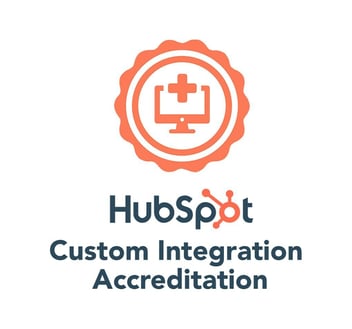eCommerce is booming, and it’s not only consumers who are flocking online to book, order, subscribe and buy. Business customers are ready and willing to purchase online too. In this blog we look at the growing demand for B2B ecommerce, and how and why NZ businesses should consider supplementing their traditional sales channels with online, direct-to-customer ecommerce solutions.
The business case for B2B ecommerce
If Covid has taught us anything, it’s that anything can happen! For many businesses, the shock of the pandemic has put traditional sales channels under the microscope as, around the globe, people, technology and processes struggle with social distancing, lockdowns and changing customer demands.
For many, the idea of ecommerce has been ‘percolating’ for some time, and Covid has simply fast-tracked the need to diversify. In fact, the B2B ecommerce trend has been gaining momentum long before Covid:
The B2B landscape is older than we think with 78% of B2B retailers saying they have been selling online for 2-5 years. (BigCommerce, 2019).
The reasons for including eCommerce in your mix of B2B sales channels can vary:
-
Diversification of product offering
-
Introduction of D2C channel as a new revenue stream
-
CX improvement - reduce friction for customers by enabling self-service
-
Reach customers anywhere, anytime
-
Digital transformation may have enabled an eCommerce offering previously not possible due to legacy systems and processes
-
A desire to retain and better service repeat customers
-
A desire to improve efficiency and reduce costs
-
Customer demand and competitive threat may be driving a change in purchase behaviours.
B2B vs B2C online buying behaviours are different
Business people are people too. As B2B customers become more accustomed to making business purchases online, they expect the same experience they get as a consumer from a ‘UX’ perspective. However, the B2B online purchasing process is not the same as B2C.B2C Buyers:
-
Emotive, in-the-moment purchase decisions
-
Complex price search and product comparison
-
Value an immersive multichannel purchase experience
-
Motivations are often aspirational.
B2B Buyers:
-
Rational, business-based decisions
-
Product comparisons based on features and technical specifications
-
Pricing (and discounts) often bound by contract
-
Value is placed on simplicity, agility and saving time.
Source: Liferay.com
In addition, business customers may have multiple people involved in the purchase decision and much longer buying processes.
Therefore, in order to develop an appropriate B2B ecommerce strategy for your business, it’s vital to have an intimate understanding of your buyers, their journey to purchase, their influencers and ‘moment of purchase’ triggers.
Benefits of offering online purchase channels for your B2B customers
Like any sales channel, ecommerce provides an opportunity to acquire new customers, while retaining and growing loyalty with existing customers.
For acquisition:
-
78% of B2B buyers start their customer journey with a google search
-
Depending on your offer, if you don’t put a till at the end of the journey, you’re potentially missing out on sales
For retention and building loyalty:
-
Many businesses struggle to delight returning customers after the initial sale
-
Offering an ecommerce solution for repeat or new purchases reduces friction for customers
-
The great experience your online store delivers is rewarded by increased loyalty and word of mouth recommendations.
How to prevent channel conflict
If ecommerce is being introduced alongside your existing direct sales channel, it’s important to get your channel strategy right. Everyone needs to be on the bus.
-
Empower your sales team, don’t neglect them
-
Self service is great, but you may want to provide a more personal touch for high value accounts, especially if you have very complex products or a broad catalog
-
Many B2B buyers still expect to collaborate with individuals on your sales team and value the unique insight their experience can bring
-
Facilitate this by adding tools to your ecommerce site that give sales team deep insight into the accounts they manage
-
Give them an at-a-glance view of recent order history, pending orders and product recommendations based on their buying patterns so that they instantly have context for each account
-
Automate insights with machine learning to trigger alerts when there might be an issue with an account - this ensures that reps know exactly when to check on an account and take action to save it.
Source: Liferay.com
Get your tech right
To provide a great experience for both your customers, your sales team and the internal people supporting your ecommerce offering, you must select good tech. Look for:
-
ecommerce best practice technology - don’t reinvent the wheel or try and build it yourself (unless you have an incredibly unique business model and deep pockets)
-
Ensure all use cases are accommodated in the scoping and specification of the system - refunds, renewals, payment issues, subscriptions management, returns etc
-
Ensure the ecommerce solution is plugged into a good CRM that your sales team can access so they can see purchase history anytime, anywhere
-
Ensure the system is also plugged into a good marketing automation platform that can run your customer nurture programme, and also manage triggered notifications to your sales team if there are issues with transactions
-
Ensure you can draw out customer insights and data that enables you to fine tune your product offering, improve your service and in turn grow revenues from your B2B ecommerce channel.
This blog only scratches the surface of what it takes to develop a B2B ecommerce offering. If this has spurred further thoughts of implementing or improving ecommerce for your business, we’d love to talk.
At Engaging Partners we have in-house expertise in eCommerce and HubSpot CRM integrations for businesses of all sizes and complexity.

.jpg)









